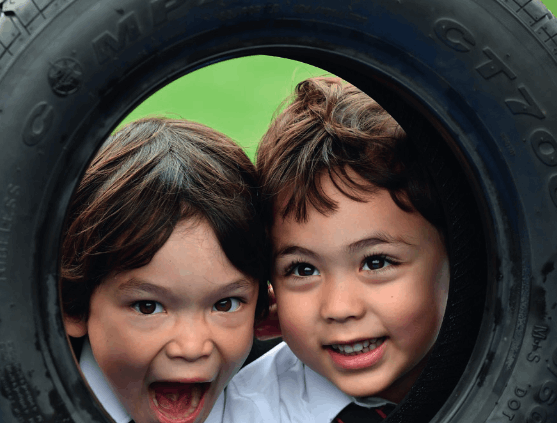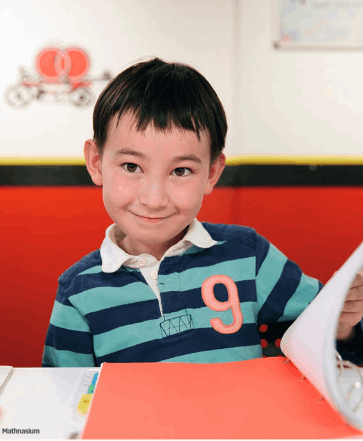Menu
Sian Griffiths, Education and Families Editor of The Sunday Times, explores if and how schools are meeting the challenge of children’s wellbeing across the curriculum, learning styles and exams.
Jemima, a bouncy Jack Russell, is the worry dog at The Roche School, a co-educational prep in south London.
The little terrier, the pet of the school’s head of pastoral care, started coming into school during the pandemic. She was so successful at helping children relax and open up and talk in the classroom that teachers have kept her on.

As schools start a new academic year three years on from the coronavirus pandemic, they are still grappling with how to best help children deal with the biggest upheaval to schooling since World War II. Jemima the worry dog is just one of many items on the agenda for change as teachers across the country continue to ‘build back better’.
Building back better for schools is prioritising wellbeing in education, fostering a foundation of physical health, emotional resilience and a flourishing mind. Julie Tyler, Camp Director at Camp Suisse says, “It empowers learners to thrive, inspiring a future where success is measured not just by what we know, but by how we grow.
“When we prioritise the wellbeing of children, we create an environment that supports their physical, mental, and emotional health. This, in turn, has a profound impact on their overall development and academic success.”
After long periods in lockdown children arrived back in primary schools less able to maintain friendships, share toys or follow instructions. Older children were behind in their academic work and less used to socialising.
John Preston, MD at Mathnasium UK, has noted a clear impact of Covid learning loss. He says that, “children are assessing below where they should be across all age groups. What we are seeing when children first join Mathnasium is a significant gap between where students are in maths and where they should be for their school year group. We have seen this since the start of Covid, and even now the effects are still clearly having an impact on attainment.”
THE BENEFITS OF OUTDOOR LEARNING UP TO 16
The many benefits of being outdoors speak for themselves, especially in an age when digital devices are the new norm, but outdoor learning doesn’t need to stop at primary school.
For children to be outside gives them a sense of freedom beyond the usual classroom environment, where they can be at one with nature, learn key skills and regulate themselves independently. As one of our Year 2-4 teachers said, “they didn’t even need us, we were redundant”.
It is just as important to get outside at secondary school and let go of the stresses that start all too early in life. Not all 16-year-olds will be climbing trees and jumping in puddles, but even creating little reading nooks and study spots in the outdoor environment can make the world of difference to the way our brains perceive what we are doing.
Source: Atelier 21 Future School
The cracks began to show in nursery where children need support in communication and language. Roosha Sue, Headmistress of Eaton House The Manor Nursery School explains, “This may be the result of a lack of socialisation, including a lack of peer talk due to social distancing, and mask-wearing parents and adults, where babies can’t see facial expressions, missing social cues and words being formed and said.
“The nuances of language acquisition are lost through online alternatives and are not suitable for babies and young children. In nursery, we are now working hard to support children with any gaps in this area of development.”

Further along in pupils’ educational journey, schools nationwide are still reporting an increase in absenteeism and behavioural issues, including some boys’ behaviour towards girls after time online exposed to porn and misogynistic sites such as those of the social media influencer Andrew Tate.
Figures from NHS Digital show that one in six children in England had a probable mental health disorder in 2021 after the pandemic, an increase from one in nine in 2017.
Alicia Drummond, therapist and founder of Teen Tips, a company which trains staff on how to improve children’s wellbeing, has set up a wellbeing hub for schools, an online platform open to parents, teachers and pupils.
Drummond, who is advising schools across the country, says “worried children find it difficult to learn” and points out that their development “is badly delayed” in some cases after the coronavirus crisis.
Fourteen-year-olds are operating at the social and emotional level of 12-year-olds and 12-year-olds at the level of 10-year-olds.
While reassuringly saying that 80% of children are coping well and “forging ahead” at school, Drummond notes that some schools are bringing in “more therapists and counsellors” and investing in questionnaires for pupils that are designed to pick up issues before feelings escalate, developments she welcomes.
At The Roche, where 70 children apply for 35 places each year and fees are £6,420 for the upper school, Sophie Roche says “we have put more [resources] in to help children develop socially, separate from their parents, and resolve conflict.”
The 280-pupil school has a drop-in centre staffed by teachers trained in therapy. Parents or staff can refer children there to get advice on issues ranging from missing mum to “more serious worries such as bereavement, divorce, moving school, low self-esteem and anxiety,” says Roche. Children can also self-refer.
WELLBEING: BEING COMFORTABLE, HEALTHY OR HAPPY
Wellbeing, kindness and resilience are in the sedimentary layers of our curriculum and several core aspects to our ethos have been in place since the school was founded.
Love for one another comes from a place of respect and tolerance where we celebrate differences in backgrounds, beliefs and identities. Having wisdom as a child is crucial, and when we own our knowledge, we have a better sense of self-assurance and self-care to tackle problems, understand the feelings of others and take action. Similarly, recognising our mistakes or challenges enables us to confront them, allowing positive thought which helps us make progress.
These life skills sit within the curriculum, paving the way for independence in work, mind and thought so that critical thinking comes with much greater ease. Children are comfortable challenging each other, asking questions and developing their sense of agency.
Source: Dolphin School
One tried and tested way of boosting wellbeing is getting children out into healing nature to learn and build confidence.
Woldingham, a leading UK day and boarding school for girls aged 11 to 18 set in 700 acres in the Surrey Hills, a 25-minute train journey from Clapham Junction, has opened a new outdoors education and adventure school since the pandemic.
Dr James Whitehead, headteacher of the school, one of the oldest girls-only schools in the UK, says “we are also making the centre available for use by local prep and primary schools. Access to green space, exercise and fresh air has a range of benefits for young people, as we nurture their wellbeing.”
According to Drummond, schools are also labelling meals in the dining room with lists of ingredients and nutritional values, as well as offering sleep lessons to parents and pupils alike.
One of the boldest initiatives is the opening of a brand-new senior school designed along wellbeing principles. London Park School Clapham, a secondary school, will be small – no more than 250 pupils: research shows that teenagers can get lost and struggle in very large schools, of which London has many in the state sector. The co-educational school will accept 80 pupils in the first year and will admit pupils at age 11 and 13. Fees for 2023/24 are £7,950 a term.
Suzie Longstaff, former head of Putney High School GDST, is overseeing the setting up of London Park School Clapham, as part of a group of new secondary schools for Dukes Education, which already owns prep schools including Broomwood and Eaton House The Manor.

A site has been bought on Clapham Common and the new school, led by headteacher Paul Vanni, opens this September. “It is small and caring and wellbeing is at its heart,” says Longstaff. “There is a real demand for it because schools in London have been getting bigger and bigger, but post-Covid there is a shift back to children and their needs, including thinking about and meeting their neurodiversity and learning styles. This is where small can be better; the schools will have a nurturing ethos which is difficult to achieve in larger schools. We want to change the face of education.
“The idea is to have a strong community focus, with students taking part in volunteering locally. It is time for change; post-Covid the landscape of education is shifting.”
Longstaff is among many education leaders now also calling for a new curriculum, away from old rote learning models. “We see a need for a focus on creativity, climate change and cyber skills, giving children the tools to thrive in society in the future.” As in Woldingham, children will be taken out of the classroom to “learn by doing”, including with a link up to the Tall Ships sailing project in which children learn how to sail a tall ship by spending time at sea.
Even before the pandemic, hot-housing and intensive coaching for admissions tests to highly selective senior schools had been blamed for growing levels of anxiety among children in the capital. Up to seven children compete for each fee-paying senior school place.
Just before Covid in 2019 the ISEB announced that Britain’s oldest exams were to be reformed. The board brought in online pre-tests to Common Entrance. Pupils in Year 6, aged 10 and 11, can sit the computerised pre-tests in their existing primary and prep schools. Prep and junior schools are still adjusting the way they teach to the new qualifications, which are designed to ease some of the pressures on young children by allowing them to sit just one set of tests.
Senior schools are using the pre-entrance tests to select pupils in different ways, with some still setting their own additional tests and interviews. Some schools, such as Alleyn’s, use the pre-tests to sift out up to half of the candidates applying while others look at the results as part of a package that includes English, maths and reasoning tests, and interviews following the pre-tests.
Longstaff says, “I have worried about the impact on wellbeing of exams and tests on kids.” At the new school children will be assessed “holistically using fun assessments and reports from their previous schools.”
After two years when GCSE and A-level exams were scrapped and teachers awarded children grades, this summer saw another round of traditional examinations and the return of the tougher grading of papers that was in place before the pandemic. Schools have brought in counsellors to help children unused to formal exams – who have also missed days of learning this year due to teachers’ strikes – turn up on the day and manage their stress levels.
To help children catch-up on the months of lessons lost due to Covid-19 forcing school closures, the government has also brought in a parent pledge, promising free catch-up tutoring through state schools for children who have fallen behind. The tutoring offer is still available though some headteachers have criticised the usability of the online tuition.
With the cost of living crisis hitting parents hard, families will be alarmed to learn that school fees rose on average nearly 5.6% this year, according to a 2023 census of the Independent School Council’s 1,395 schools, with some schools hiking fees by as much as 10%. The average annual day fee in senior schools is now £16,656 according to the ISC. At Whitgift in Croydon, senior school fees will rise from £22,269 in 2022/23 to £24,462 in 2023/24; at Alleyn’s they will go from £22,860 to £25,020.
Fees at Trinity have risen 11% this year after serious debate, explains Head Alasdair Kennedy. “In considering our fee level for next academic year, we have weighed carefully with our governing body the real needs of the school alongside the pressure on affordability for many families. Trinity’s fees remain below those of our competitor schools, but this requires careful planning and management to ensure we can provide the highest quality of education both now and in the future” (see our feature on affordability on page 94).

Meanwhile in one of the most exciting developments for many years, schools are offering families free parenting classes which include tips on stopping children vaping and enforcing sanctions for misbehaviour – something Drummond says some parents are reluctant to do after many youngsters had such a difficult time in the pandemic.
“Schools are making huge amounts of effort to bring parents on board,” says Drummond of Teen Tips. “The best environment for children is when schools and homes are closely aligned. Children need this now more than ever as we all build back better.”
Roosha Sue, Head of Eaton House The Manor Nursery School, agrees that parents can play their part in building back better. ”We are working hard to support children in COVID-related developmental gaps,” she says. “Practitioners and parents can have a lot of fun with children, while supporting them in the strands of communication and language; understanding, speaking and listening, and attention.
“Take some time out to tune into your little one’s language. Have fun, be silly with words, sing songs loudly and make up rhymes together, perhaps involve siblings and grandparents. These small steps can help inspire a love and curiosity of the English language that will last a lifetime.”